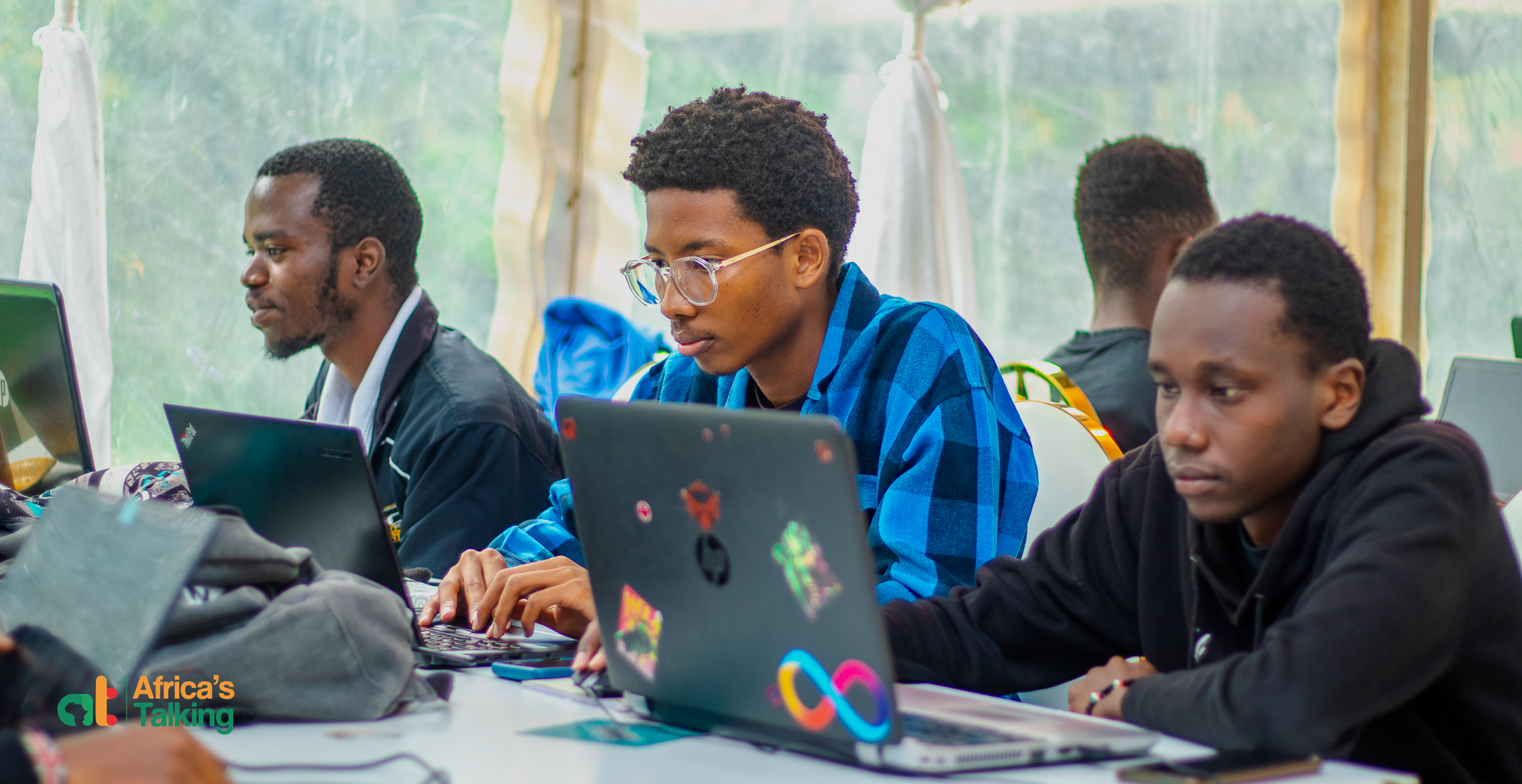Africa’s Talking Discovers Savings and Flexibility by Migrating to AWS
Africa’s Talking provides an API platform for telecommunications infrastructure in Africa. The service gives developers the power to create text- and voice-based telecommunications solutions for banks, government, and ecommerce businesses. The company’s private cloud infrastructure was holding back its growth as its developer community continued to grow. Using the AWS Migration Acceleration Program, the company migrated to a containerized service on AWS using Amazon Elastic Kubernetes Service and Amazon OpenSearch Service.
Benefits
Overview
The company’s existing private cloud environment was hampering its ability to grow. Africa’s Talking decided to migrate to Amazon Web Services (AWS), completing the move in just 2 months using the AWS Migration Acceleration Program (MAP). This allowed the company to accelerate its cloud migration and modernization journey with an outcome-driven methodology—and make significant cost savings as a result. The platform is now more efficient, cost effective, and can easily scale to meet demand.
Africa’s Talking improved the workflow for its developers after it chose to work using AWS container technology. In addition, Amazon OpenSearch Service, which securely unlocks real-time search, monitoring, and analysis of business and operational data, has allowed its developer team to innovate.

About Africa’s Talking
Africa’s Talking has built an API platform for mobile telecommunications infrastructure in Africa. The company helps the African developer community to create, grow, and sustain great businesses. Africa’s Talking supports a viable, entrepreneurial ecosystem using its telecommunications API solutions. The company is integrated with 80 telecoms companies and has an active developer community of 150,000+. Over 4 billion messages a year are sent using its platform.
Opportunity | Reducing Cloud Costs by 50% and Increasing Service Offerings with New Flexibility
Africa’s Talking wants to ensure that developers in Africa can implement innovative telecommunications solutions into their business successfully. Its mission is to provide simplified access to telecommunications infrastructure through a variety of solutions, to help entrepreneurs in industries such as FinTech, government, and ecommerce, scale to meet demand and engage with customers through their preferred communication method.
Its solutions include easy-to-use and reliable SMS APIs, to add text messaging to mobile and web applications, Unstructured Supplementary Service Data (USSD)—which uses number replies to route customer journeys—and web-based call centers. It uses an API for distributing virtual airtime, a valuable communication tool for connecting with loved ones and services, across mobile service providers in Africa. Over 4 billion text messages are sent each year using its services, which integrate with over 80 telecoms providers.
Since 2019, Africa’s Talking developer user base, which it provides services to, has increased from 50,000 to 150,000. The company has experienced 300 percent growth. But the company’s private cloud infrastructure was hampering its ability to grow. The cost of operating a private cloud was high and didn’t give Africa’s Talking the ability to scale easily. Provisioning cloud resources for a new project was time-consuming and three IT engineers were required to keep the cloud running. In addition, database maintenance was manual and time consuming with updates often requiring 2 days of downtime.
Downtime had a direct impact on the company’s profits. There was also no testing capacity, which meant its developer customers couldn’t experiment with their products on its servers. Managing services was a challenge because if something broke, downtime followed and revenue suffered.
In addition, developers were increasingly demanding insights from the data their services were generating, but the company didn’t have the business intelligence to provide this. Faced with these challenges, Africa’s Talking decided to migrate to AWS, a decision influenced by the need to make cost savings and due to the extensive documentation available for services.
Solution | Empowering Local Telcos by Providing Best-in-Class Voice Services to More African Countries in Just 6 Months
Africa’s Talking began its journey using the AWS Migration Acceleration Program (MAP), a comprehensive and proven cloud migration methodology. Using MAP, the company migrated its business in just 2 months. “AWS has lots of documentation, which helped our engineers and meant the transition was quick,” says Cynthia Moraa, Women in Technology community lead at Africa’s Talking.
The company then moved to a containerized model using Amazon Elastic Kubernetes Service (Amazon EKS), to easily start, run, and scale Kubernetes. Doing so reduced Africa’s Talking infrastructure costs by 50 percent because it was no longer over-provisioning virtual machines.
With greater flexibility and scalability, the company was able to immediately start developing service offerings such as its web-based voice call centers, which allows its customers to spin up voice contact centers without having to invest in expensive hardware and networks. Businesses can keep their local phone number but use Africa’s Talking cloud services to scale their customer service as they need. The company currently provides this service in Kenya, Nigeria, and Uganda, and has recently expanded into Egypt, Ghana, Rwanda, South Africa, and Tanzania in the 6 months following its migration.
The Africa’s Talking API, Voice, is programmable and scalable, and 80 percent of its production workloads now run on AWS. “It’s important that each region retains its own local phone number, while having the backing of our platform to handle as many incoming and outgoing calls as they need,” says Graham Muhanga, SVP marketing, partnerships, and sales at Africa’s Talking. “Voice is the poster child of our growth, and demand for omnichannel customer service has never been higher in Africa. No matter how big the brand, we can handle any workload—thanks to AWS.”
Data requirements change from country to country so it was essential for Africa’s Talking to know it could meet compliance standards wherever it operates. It uses Amazon Simple Storage Service (Amazon S3)—object storage built to retrieve any amount of data from anywhere.Using the Amazon OpenSearch Service has also opened up opportunities for gathering and processing business intelligence that weren’t possible before. “We’ve made data a business for our customers,” says Muhanga. “Now that their data sits all in one place on our platform, we’ve extended the life of our data and are helping our customers generate insights to help them tailor their services.”
The testing environment is another key aspect of the company’s business. Known as the Yoda Platform, developers from all around the world can test their USSD text solutions in pre-production. This has increased innovation and encouraged developers from China, Europe, and North America to build telecommunications infrastructure solutions for the African market. “Testing just didn’t work in our old environment, but now it’s a game-changer,” says Moraa. “We’re on our way to developing our own marketplace, which will be a boost to many businesses.” In addition, using the Yoda Platform, the company is now 3 times faster to market with its own service offerings.
Outcome | Continued Growth with the Support of AWS
Using AWS, Africa’s Talking product teams have shifted from firefighting to thinking about their product offerings more strategically. “Now that we can quickly spin up ideas, we’re spending much more time on research and development,” says Muhanga. “We’re excited for the future.”

Demand for omnichannel customer service has never been higher in Africa. No matter how big the brand, we can handle any workload - thanks to AWS.
Graham Muhanga
Senior Vice President - Marketing, Partnerships, and Sales, Africa’s TalkingAWS Services Used
Get Started
Did you find what you were looking for today?
Let us know so we can improve the quality of the content on our pages